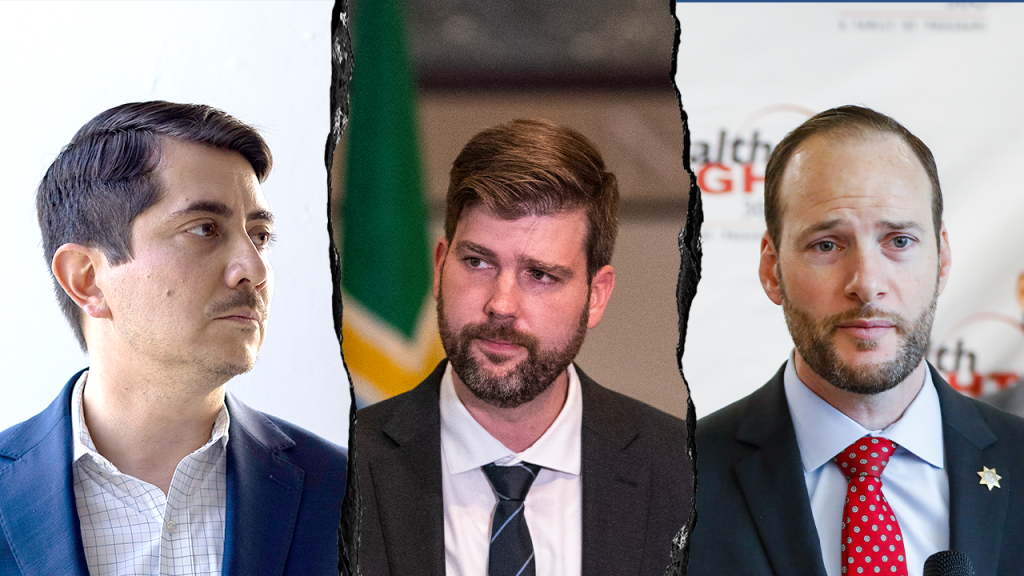The Hidden Hand Behind Progressive Prosecution
A groundbreaking report by the Law Enforcement Legal Defense Fund (LELDF) has uncovered the substantial influence of a little-known consulting firm called the Wren Collective in shaping the policies and messaging of progressive prosecutors across America. According to the report titled “Outsourcing Justice,” this firm, founded in 2020 by attorney Jessica Brand, has quietly guided at least 40 progressive district attorneys across 22 states in their “policies, public communications, and legal decisions.” While positioning itself as an organization focused on evidence-based criminal justice reform, the LELDF investigation suggests the Wren Collective wields influence that extends far beyond mere advisory services, potentially creating a disconnect between these prosecutors’ actions and the will of their local voters.
The report details how the Wren Collective has become deeply embedded in the operations of progressive prosecutors’ offices since 2015, when a wave of reform-minded district attorneys began winning elections across the country. Among the identified “hatchlings” of the Wren Collective are high-profile former DAs like Chesa Boudin of San Francisco and George Gascon of Los Angeles, along with current prosecutors like Jose Garza of Travis County, Texas. Documents obtained through Freedom of Information Act requests reveal extensive communication between these offices and the consulting firm, with services ranging from policy development to crisis communications support. In one revealing 2020 email to then-incoming Multnomah County (Portland) DA Mike Schmidt, a Wren Collective attorney offered assistance with numerous policy areas including bail reform, diversion programs, probation guidelines, and prosecutions related to policing—all “without any billing or publicity” while assuring that “these policies will be yours, not ours.”
The depth of involvement appears to vary across different prosecutor offices, but in some cases goes beyond casual consultation to formalized relationships. In Travis County, Texas, District Attorney Jose Garza’s office reportedly entered into a non-disclosure agreement with the Wren Collective’s Jessica Brand in 2022, establishing a confidential professional engagement for “policy and communications support.” The report suggests that such arrangements place the firm in a position to shape critical prosecutorial decisions while operating largely out of public view. In another instance, when Loudoun County, Virginia, Commonwealth Attorney Buta Biberaj faced scrutiny over a high-profile sexual assault case in 2021, the Wren Collective allegedly stepped in to provide communication strategy after a judge removed Biberaj from an appeal case citing “concerns” over “impartiality.”
The LELDF report raises particular concerns about what it describes as an “influence-peddling operation,” suggesting that the Wren Collective serves as a conduit between well-connected donors or activists and district attorneys’ offices. By facilitating access and engagement between these outside interests and elected prosecutors, the report argues that the group potentially undermines the democratic process by allowing policies to be shaped “at the behest” of a select few rather than by local constituencies. The investigation also claims that the Wren Collective plays a role in campaign activities for progressive prosecutors and their allied political action committees, helping with fundraising strategies and media communications—creating a continuous cycle of support from election to governance.
When contacted about the report, Jessica Brand defended the Wren Collective’s work, stating that they have “spent five years proudly working with prosecutors and law enforcement on policies that reduce crime and improve community safety.” She characterized their services as “common practice” among both conservative and progressive organizations working with prosecutors’ offices. Brand also questioned why the LELDF would focus on the Wren Collective rather than addressing issues like “major mental health challenges in law enforcement and a recruitment crisis.” The LELDF report, however, maintains that many newly elected progressive DAs enter office without prosecutorial or organizational leadership experience and turn to outside groups like the Wren Collective for guidance—groups that may have also supported their campaigns.
This investigation reveals a complex and largely hidden dynamic in how criminal justice reform is being implemented across America. While the Wren Collective presents itself as an organization helping prosecutors design evidence-based policies, the LELDF report raises important questions about transparency, democratic accountability, and who truly influences our local justice systems. As reform-minded prosecutors continue to reshape criminal justice in communities nationwide, understanding the networks of influence behind these changes becomes increasingly important for voters and community members who ultimately live with the consequences of these policies. The tension between expert guidance and democratic representation lies at the heart of this story, challenging citizens to consider how justice is being defined and delivered in their communities.


